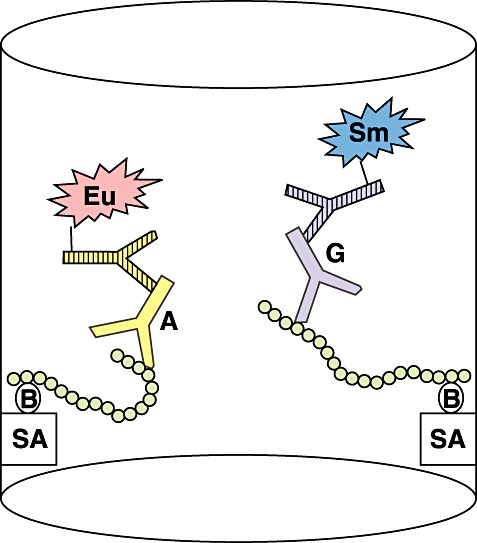Indications:
The dosage of anti-gliadin antibodies provides help diagnose celiac disease (gluten intolerance) in children.
Principle:
A blood test can detect the presence of blood antibodies against gliadin component of the immune response in celiac disease. These antibodies disappear when gluten free diet.
 Technique:
Technique:
Blood sample to detect IgA and IgG:
– IgA are found by ELISA and immunofluorescence test;
– IgG, more sensitive, are detected by ELISA test more easily in young children: their specificity, however, is less and are less sensitive to the regime. We doses as in the case of secretory IgA deficiency.
Results:
Under physiological conditions, the gliadin antibodies are normally absent.
In case of celiac disease, if gliadin free diet is not observed, they are unnaturally present.
Their positivity threshold is located around 25 IU / mL. They disappear if the diet is followed.
reliable and accurate examination, not only can diagnose the disease but also to verify that the plan is properly followed.
One can find false positives in case of severe bowel conditions, false negatives when secretory IgA deficiency.
IgA decrease with age.
Cost:
B70.
Practical advice:
Four to five months are needed for a well-led regime will result in the normalization of blood levels.
The antibody assay often avoids the intestinal biopsy to confirm the diagnosis of celiac disease.

Leave a Reply